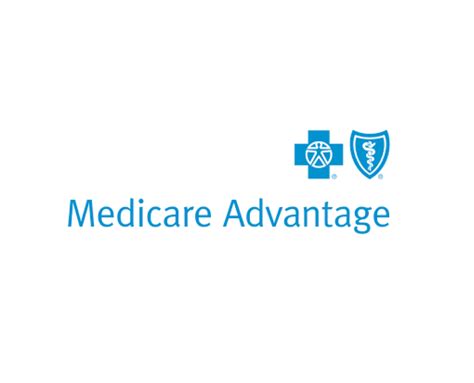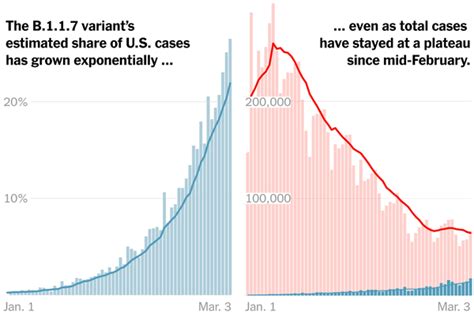
A massive cyberattack on UnitedHealth Group’s Change Healthcare subsidiary has exposed a critical vulnerability within the Medicare Advantage system, revealing how a single point of failure can disrupt healthcare services nationwide and potentially compromise patient data. The disruption, impacting pharmacies, hospitals, and physician offices, underscores the over-reliance on a centralized, for-profit entity for essential healthcare functions, raising concerns about the stability and security of the privatized Medicare program.
The attack on Change Healthcare, which processes an estimated 15 billion healthcare transactions annually, has created a ripple effect throughout the healthcare industry, leaving many providers unable to verify insurance coverage, submit claims, or receive payments. Independent pharmacies, already struggling to compete with larger chains, have been particularly hard hit, with some facing potential closure due to the cash flow crunch. “This is a huge problem, and it’s impacting pharmacies nationwide,” said National Community Pharmacists Association CEO B. Douglas Hoey.
The incident has ignited a debate about the concentration of power within the healthcare technology sector and the potential risks associated with outsourcing critical functions to private companies. Critics argue that the reliance on a single entity like Change Healthcare creates a single point of failure that can have catastrophic consequences when targeted by cybercriminals. Furthermore, the focus on profit maximization within these companies may come at the expense of robust cybersecurity measures and adequate redundancy planning.
The UnitedHealth failure highlights the inherent tension within Medicare Advantage, a program designed to leverage market forces to control costs and improve care. While proponents argue that Medicare Advantage plans offer greater choice and benefits compared to traditional Medicare, critics contend that these plans often prioritize profits over patient care and that the complex network of providers and vendors creates opportunities for inefficiencies and vulnerabilities. The cyberattack on Change Healthcare underscores the potential downsides of this approach, demonstrating how a disruption in one part of the system can quickly cascade throughout the entire network.
The ramifications of the Change Healthcare attack are far-reaching, impacting not only healthcare providers and patients but also the broader economy. The disruption has forced many providers to delay or cancel appointments, ration medications, and implement manual workarounds, leading to increased costs and administrative burdens. The long-term consequences of the attack remain uncertain, but it is clear that the incident will have a lasting impact on the healthcare industry and the debate over the future of Medicare.
The Concentrated Power of Change Healthcare
Change Healthcare’s dominance in the healthcare technology sector is a result of decades of mergers and acquisitions, culminating in its acquisition by UnitedHealth Group in 2022 for approximately $8 billion. This acquisition further solidified UnitedHealth’s position as the largest healthcare company in the United States, giving it unparalleled control over the flow of healthcare data and payments.
Change Healthcare provides a wide range of services, including claims processing, revenue cycle management, payment solutions, and data analytics. Its platform connects payers, providers, and pharmacies, facilitating the exchange of information and the processing of transactions. This central role makes it a critical infrastructure component of the healthcare system, but it also makes it a prime target for cyberattacks.
The concentration of power in the hands of a single company raises concerns about potential conflicts of interest and the lack of competition in the market. Critics argue that UnitedHealth’s ownership of Change Healthcare gives it an unfair advantage over its competitors and allows it to control the flow of information to benefit its own bottom line. The cyberattack has only intensified these concerns, highlighting the risks associated with allowing a single company to control such a large portion of the healthcare infrastructure.
The Impact on Pharmacies
Independent pharmacies have been particularly hard hit by the Change Healthcare outage. These pharmacies, which often serve rural and underserved communities, rely on Change Healthcare to process prescriptions, verify insurance coverage, and receive payments. The disruption has left many pharmacies unable to fill prescriptions, forcing patients to go without their medications or seek care elsewhere.
The National Community Pharmacists Association (NCPA) has been vocal about the impact of the outage on its members. In a statement, NCPA CEO B. Douglas Hoey said that the disruption has created a “cash flow crisis” for many independent pharmacies and that some may be forced to close their doors if the issue is not resolved quickly.
The outage has also exposed the fragility of the pharmaceutical supply chain. Pharmacies rely on Change Healthcare to communicate with drug wholesalers and manufacturers, and the disruption has made it difficult to order and receive medications. This has led to shortages of some drugs and increased costs for pharmacies.
The Broader Implications for Healthcare
The Change Healthcare cyberattack has broader implications for the healthcare industry as a whole. The disruption has highlighted the vulnerability of the healthcare system to cyberattacks and the need for stronger cybersecurity measures. It has also raised questions about the role of government in regulating the healthcare technology sector and ensuring the security of patient data.
The attack has also underscored the importance of having backup systems and contingency plans in place in case of a cyberattack or other disruption. Many healthcare providers were caught off guard by the Change Healthcare outage and were unprepared to deal with the consequences. This has led to calls for providers to invest in more robust cybersecurity measures and to develop contingency plans that can be activated in the event of a similar incident.
The federal government has taken steps to address the Change Healthcare outage, including providing guidance to healthcare providers on how to mitigate the impact of the disruption and offering financial assistance to pharmacies. However, some critics argue that the government needs to do more to regulate the healthcare technology sector and to protect the healthcare system from cyberattacks.
Medicare Advantage Under Scrutiny
The Change Healthcare cyberattack has also reignited the debate over the merits of Medicare Advantage. Medicare Advantage is a program that allows private insurance companies to offer Medicare benefits to seniors and people with disabilities. Proponents of Medicare Advantage argue that it offers greater choice and benefits compared to traditional Medicare and that it helps to control costs.
Critics of Medicare Advantage contend that these plans often prioritize profits over patient care and that they create opportunities for fraud and abuse. They also argue that Medicare Advantage plans are more complex and difficult to navigate than traditional Medicare, and that they often restrict access to care.
The Change Healthcare cyberattack has highlighted the potential downsides of relying on private companies to manage Medicare benefits. The disruption has shown how a single point of failure can disrupt healthcare services for millions of Medicare Advantage beneficiaries. This has led to calls for greater oversight of Medicare Advantage plans and for stronger protections for beneficiaries.
The incident has raised concerns about the privatization of healthcare data and the potential for misuse or abuse. As more healthcare data is stored and processed by private companies, it becomes more vulnerable to cyberattacks and other security breaches. This raises questions about who should be responsible for protecting patient data and how to ensure that it is used in a responsible and ethical manner.
The Future of Healthcare Technology
The Change Healthcare cyberattack is a wake-up call for the healthcare industry. It has highlighted the vulnerability of the healthcare system to cyberattacks and the need for stronger cybersecurity measures. It has also raised questions about the role of government in regulating the healthcare technology sector and ensuring the security of patient data.
In the wake of the attack, there is a growing consensus that the healthcare industry needs to take a more proactive approach to cybersecurity. This includes investing in more robust security technologies, developing contingency plans, and training employees to recognize and respond to cyber threats.
There is also a growing recognition that the government needs to play a more active role in regulating the healthcare technology sector. This could include establishing cybersecurity standards for healthcare technology companies, conducting regular audits of their security practices, and imposing penalties for non-compliance.
The Change Healthcare cyberattack is a reminder that healthcare technology is a critical infrastructure component of the healthcare system and that it must be protected from cyberattacks. The future of healthcare depends on our ability to secure this infrastructure and to ensure the privacy and security of patient data. The industry must consider decentralization and diversification of key services to avoid single points of failure. This could involve promoting interoperability between different healthcare technology platforms and encouraging the development of alternative solutions.
The attack also underscores the need for greater transparency and accountability in the healthcare technology sector. Healthcare providers and patients need to know how their data is being used and who has access to it. They also need to have the ability to control their data and to hold healthcare technology companies accountable for security breaches.
The Change Healthcare cyberattack is a turning point for the healthcare industry. It is an opportunity to learn from our mistakes and to build a more secure and resilient healthcare system for the future. It requires a multi-faceted approach involving government regulation, industry collaboration, and individual responsibility. Only through a concerted effort can we protect the healthcare system from future cyberattacks and ensure the privacy and security of patient data.
UnitedHealth’s Response and Recovery Efforts
UnitedHealth Group has been working to restore Change Healthcare’s systems and mitigate the impact of the cyberattack. The company has stated that it is working with law enforcement and cybersecurity experts to investigate the incident and to bring its systems back online as quickly as possible.
UnitedHealth has also taken steps to provide financial assistance to healthcare providers who have been affected by the outage. The company has established a temporary funding assistance program to help providers meet their immediate cash flow needs. However, some providers have complained that the assistance has been insufficient and that the application process has been cumbersome.
The recovery process is expected to take several weeks or even months. In the meantime, healthcare providers and patients will continue to experience disruptions in services. The long-term impact of the cyberattack on Change Healthcare’s reputation and its business remains to be seen.
The incident is likely to lead to increased scrutiny of UnitedHealth’s cybersecurity practices and its role in the healthcare system. The company may face regulatory action and lawsuits as a result of the attack. It is also likely that the incident will lead to calls for greater regulation of the healthcare technology sector and for stronger protections for patient data.
The Role of Government Oversight
The Change Healthcare cyberattack has highlighted the need for stronger government oversight of the healthcare technology sector. Currently, there is limited federal regulation of healthcare technology companies, and many companies are not required to meet specific cybersecurity standards.
Some experts argue that the government should establish a new regulatory agency to oversee the healthcare technology sector. This agency would be responsible for setting cybersecurity standards, conducting audits of healthcare technology companies, and enforcing compliance.
Others argue that the government should expand the authority of existing agencies, such as the Department of Health and Human Services (HHS) and the Federal Trade Commission (FTC), to regulate the healthcare technology sector. These agencies already have experience in regulating other sectors of the healthcare industry, and they could use their expertise to address the cybersecurity risks facing the healthcare technology sector.
Regardless of the approach taken, it is clear that the government needs to play a more active role in regulating the healthcare technology sector. This is essential to protect the healthcare system from cyberattacks and to ensure the privacy and security of patient data. The government has a responsibility to protect its citizens, and this includes ensuring the security of the healthcare system.
The Path Forward: Building a More Resilient Healthcare System
The Change Healthcare cyberattack is a stark reminder of the vulnerabilities facing the healthcare system. It is essential that we learn from this incident and take steps to build a more resilient healthcare system that is better prepared to withstand future cyberattacks.
This requires a multi-faceted approach that includes:
- Investing in stronger cybersecurity measures: Healthcare providers and technology companies need to invest in more robust security technologies, such as firewalls, intrusion detection systems, and data encryption.
- Developing contingency plans: Healthcare providers need to develop contingency plans that can be activated in the event of a cyberattack or other disruption. These plans should include procedures for maintaining essential services, such as patient care and prescription filling.
- Training employees: Healthcare providers and technology companies need to train their employees to recognize and respond to cyber threats. This training should include information on phishing scams, malware, and other common cyberattacks.
- Improving information sharing: Healthcare providers and technology companies need to improve information sharing about cyber threats. This can be done through industry associations, government agencies, and other channels.
- Strengthening government oversight: The government needs to strengthen its oversight of the healthcare technology sector. This includes establishing cybersecurity standards, conducting audits, and enforcing compliance.
- Promoting data security awareness: Educating patients and healthcare providers about data security best practices.
By taking these steps, we can build a more resilient healthcare system that is better prepared to withstand future cyberattacks and to protect the privacy and security of patient data. The future of healthcare depends on our ability to secure this critical infrastructure.
Frequently Asked Questions (FAQ)
1. What happened to Change Healthcare?
Change Healthcare, a subsidiary of UnitedHealth Group and a major processor of healthcare transactions, experienced a significant cyberattack in February 2024. This attack disrupted its systems, impacting pharmacies, hospitals, and healthcare providers nationwide.
2. How did the Change Healthcare cyberattack affect healthcare providers?
The cyberattack significantly impacted healthcare providers by disrupting their ability to verify insurance coverage, submit claims, receive payments, and process prescriptions. Many providers experienced cash flow problems, leading to delays in care and increased administrative burdens.
3. What is Medicare Advantage, and how is it related to the Change Healthcare cyberattack?
Medicare Advantage is a program where private insurance companies offer Medicare benefits. The Change Healthcare cyberattack exposed a vulnerability in the system, highlighting the risks associated with relying on a centralized, for-profit entity for essential healthcare functions within the Medicare Advantage framework. The attack underscored how a single point of failure can disrupt the entire network of providers and beneficiaries.
4. What steps are being taken to address the Change Healthcare outage?
UnitedHealth Group is working to restore Change Healthcare’s systems and mitigate the impact of the cyberattack. The company is working with law enforcement and cybersecurity experts to investigate the incident. The federal government has also provided guidance to healthcare providers and offered financial assistance to pharmacies.
5. What are the long-term implications of the Change Healthcare cyberattack for the healthcare industry?
The long-term implications include increased scrutiny of cybersecurity practices in healthcare, potential regulatory changes, and a renewed focus on the resilience of healthcare systems. The attack has also raised questions about the concentration of power within the healthcare technology sector and the need for greater transparency and accountability. Additionally, it may lead to a re-evaluation of the risks and benefits of outsourcing critical healthcare functions to private companies, particularly within the Medicare Advantage program.
Additional Contextual Information and Analysis:
The UnitedHealth/Change Healthcare cyberattack is not simply a technical issue; it represents a significant systemic risk within the U.S. healthcare infrastructure. Understanding the broader context of healthcare consolidation, cybersecurity threats, and the evolution of Medicare is crucial to comprehending the magnitude and potential long-term consequences of this event.
-
Healthcare Consolidation: The trend towards consolidation in the healthcare industry, particularly the acquisition of technology providers like Change Healthcare by larger entities like UnitedHealth, has created a landscape where a handful of companies control a significant portion of the healthcare data and payment infrastructure. This concentration of power makes the system more vulnerable to single points of failure, as demonstrated by the Change Healthcare attack. The potential benefits of economies of scale and efficiency gains from consolidation must be weighed against the increased risk of systemic disruption.
-
Cybersecurity in Healthcare: Healthcare organizations are increasingly targeted by cybercriminals due to the valuable and sensitive data they possess, including patient medical records, insurance information, and financial data. The healthcare sector often lags behind other industries in terms of cybersecurity preparedness, due to factors such as limited resources, outdated technology, and a complex regulatory environment. The Change Healthcare attack underscores the urgent need for healthcare organizations to invest in robust cybersecurity measures and to prioritize data protection.
-
The Evolution of Medicare and Medicare Advantage: Medicare, the federal health insurance program for seniors and people with disabilities, has evolved significantly since its inception in 1965. The introduction of Medicare Advantage in the late 1990s marked a shift towards greater privatization and reliance on market-based approaches to healthcare delivery. While Medicare Advantage plans offer some benefits, such as expanded coverage and coordinated care, they also introduce new risks, including the potential for higher costs, limited provider networks, and increased administrative complexity. The Change Healthcare attack highlights the vulnerabilities associated with the privatization of Medicare and the reliance on for-profit companies to manage critical healthcare functions.
-
The Role of Data in Healthcare: Healthcare data is becoming increasingly valuable, not only for clinical purposes but also for research, marketing, and other commercial applications. The collection, storage, and use of healthcare data raise important ethical and legal questions about privacy, security, and control. The Change Healthcare attack underscores the need for stronger data governance policies and regulations to protect patient privacy and to prevent the misuse of healthcare data.
-
Policy Implications: The Change Healthcare attack is likely to prompt policy changes aimed at strengthening cybersecurity, regulating the healthcare technology sector, and improving the resilience of the healthcare system. Potential policy responses include:
- Enhanced Cybersecurity Standards: The federal government could establish mandatory cybersecurity standards for healthcare organizations and technology providers, similar to the standards that exist in other regulated industries.
- Increased Oversight and Enforcement: The Department of Health and Human Services (HHS) and other regulatory agencies could increase their oversight of the healthcare technology sector and enforce stricter penalties for non-compliance with cybersecurity regulations.
- Data Breach Notification Requirements: Stronger data breach notification requirements could be enacted to ensure that patients are promptly informed when their data has been compromised.
- Incentives for Cybersecurity Investment: The government could provide financial incentives to encourage healthcare organizations to invest in cybersecurity measures.
- Promotion of Data Interoperability: Policies that promote data interoperability could help to reduce reliance on single technology vendors and to facilitate the sharing of data among different healthcare providers and systems.
- Review of Medicare Advantage Policies: The Change Healthcare attack may prompt a review of Medicare Advantage policies to address concerns about the concentration of power, the lack of transparency, and the potential for conflicts of interest.
-
Economic Impact: Beyond the immediate disruptions to healthcare delivery, the Change Healthcare attack could have significant economic consequences. The costs associated with the attack include:
- Recovery and Remediation Costs: The costs of restoring Change Healthcare’s systems, investigating the breach, and notifying affected individuals could be substantial.
- Lost Revenue: Healthcare providers and pharmacies that were unable to bill for services or receive payments may have experienced significant revenue losses.
- Increased Administrative Costs: The need to implement manual workarounds and to deal with claims processing delays could increase administrative costs for healthcare providers.
- Legal and Regulatory Costs: UnitedHealth Group and Change Healthcare could face legal challenges and regulatory penalties as a result of the attack.
- Reputational Damage: The attack could damage the reputation of UnitedHealth Group and Change Healthcare, potentially leading to a loss of business.
-
The Human Cost: While the financial and economic impacts of the Change Healthcare attack are significant, the human cost should not be overlooked. The disruption to healthcare services could have serious consequences for patients, particularly those with chronic conditions or those who require urgent care. The stress and anxiety associated with the attack could also take a toll on healthcare providers and staff.
In conclusion, the UnitedHealth/Change Healthcare cyberattack is a complex and multifaceted event with far-reaching implications for the healthcare industry. Addressing the vulnerabilities exposed by the attack will require a concerted effort by government, industry, and healthcare providers to strengthen cybersecurity, regulate the healthcare technology sector, and improve the resilience of the healthcare system. The focus must be on protecting patient data, ensuring access to care, and building a healthcare system that is prepared to withstand future cyber threats. Ignoring these crucial points would be detrimental to healthcare infrastructure and the well-being of the general population.









